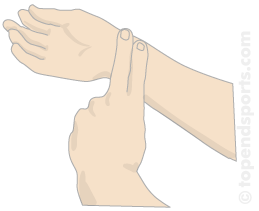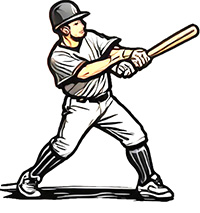Your heart has a very important role to play in pumping your blood around the body, through a cycle of continuously and regularly contracting then relaxing. We can measure the rate of these contractions of the heart directly using electrodes placed over the chest or listening to the beats using a stethoscope, or indirectly by feeling the pulse of the contraction at various places around the body where an artery is close to the skin surface.
The rate of the heart contractions can vary greatly, and is affected by many factors, including your state of excitement, exercise, disease and medications.
Normal Heart Rate at Rest
The normal resting heart rate is typically listed as between 60 and 80 beats per minute. If you read the comments on our webpage on resting heart rate and fitness, you will find people report their resting heart rate level anywhere from below 40 to over 120 beats per minute. 
There are many factors which account for a particular heart rate measurement. We are all unique and have individual differences which result in a particular heart rate. While 60 to 80 beats may be common, there are still resting heart rate levels outside of this range which may still be a normal and healthy level.
In many cases there are easily explained reasons for the resting heart rate to be outside of the typical range. If you have read the information below and are still concerned that your resting heart rate is outside of the normal range, then seek expert medical opinion. Don't rely on the comments and feedback here as medical advice.
If you have any concerns at all about the functioning of your heart, you should consult a doctor who can examine you personally and give expert opinion.
Why you might have a low resting heart rate - Bradycardia
Bradycardia is a slow heart rate, defined as a resting heart rate below 60 beats per minute.
First of all, make sure you have calculated your heart rate correctly. See detailed information on how and when to measure resting heart rate. For best results you should be calm and your body very well rested. If you are confident that you have measured your resting hear rate correctly, the first thing to consider is that your low heart rate may be the result of an efficient heart, which is an adaptation of aerobic fitness training. Fitter people often have a low resting heart rate as when you get fitter the heart gets more efficient at pumping blood around the body, so at rest more blood can be pumped around with each beat, therefore less beats per minute are required. See the heart rate and fitness chart which relates resting heart rate with fitness level.
If you are pretty sure you have measured your heart rate correctly and that you are not fit, then you need to consider other factors. Medications you are on may have caused your heart rate to slow. Some medicines that may slow the heart include those for treating heart problems or high blood pressure, such as beta-blockers, antiarrhythmics, and digoxin. Another factor to consider is illness - Heart diseases can damage the heart's electrical system, such as coronary artery disease, heart attack, and infections such as endocarditis and myocarditis. There are also medical conditions that can slow the electrical impulses through the heart, such as having a low thyroid level or an electrolyte imbalance.
Why you might have a high resting heart rate - tachycardia
Tachycardia is a fast heart rate, defined as a resting heart rate above 100 beats per minute.
The most common cause of a higher than normal resting heart rate is that you are not actually fully rested. A resting heart rate measurement is ideally taken after a few minutes upon waking while still lying in bed. Also, you may have calculated your heart rate incorrectly. See detailed information on how and when to measure resting heart rate.
Are you small? Children and adolescents tend to have faster heart rates than average adults.
If you are confident that you have measured your resting heart rate correctly and while in a good resting state, there are a few other factors to consider. If you had recently consumed coffee or other caffeinated drinks, nicotine or other stimulants, this will cause an elevated heart rate. Smoking and heavy consumption of alcohol can also result in a high resting heart rate.
Similarly, if you are stressed or have high blood pressure, your heart rate may be elevated
As with bradycardia, illness is something to consider. A fever or other illness, some diseases and congenital heart defects may cause an elevated heart rate. There are also conditions that can increase the electrical impulses through the heart, such as having a high thyroid level or an electrolyte imbalance. A medication you are on may have caused your heart rate to be elevated. An elevated heart rate is a side effect of some drugs, also some recreational drugs like cocaine can also increase your heart rate.
If you have any concerns about your heart, you should be asking your doctor who can take a full history, examine you and give expert opinion. Don't rely on comments and feedback here as medical advice.
Related Pages
- FAQ about Resting Heart Rate
- Resting Heart Rate Chart
- How and when to measure resting heart rate
- All about Heart Rate and Exercise
- Heart Rate Records, maximum and minimum.
- Measuring Heart Rate — how to measure using the manual and monitor methods.
- Maximum Heart Rate — how high can you go?
- Topend Sports Store: Heart Rate Monitors for sale, also ECG Monitors


 Current Events
Current Events